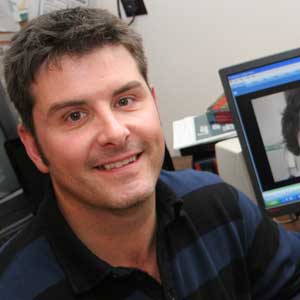 |
| Dr. Stephen Porter (Pearce photo) |
Like the rest of the world, all Dalhousie students, faculty, and staff members are horrified and saddened by the events at Virginia Tech. However, our community and other university communities are at a heightened vulnerability to be affected in a powerful way by this type of event because of our sense of connection with faculty members and students who were killed. But not only do we feel close to them as our colleagues but the utter senselessness of the shootings tells us "it could happen to us." It seems too close to home. It is important for all of us to reflect upon our personal vulnerabilities to emotional difficulties in the aftermath of this rampage.
Under these circumstances, it is perfectly normal for each of to feel saddened and distraught for the victims and their families, and concerned for our own safety. However, some people may find that their ability to cope with the details of the violence is overwhelmed. For them, this type of catastrophic and inexplicable event can result in extreme anxiety or even post-traumatic stress disorder (PTSD), even though the Virginia Tech events are being witnessed through the media far from the scene itself. In such cases, the possible psychological effects include:
- Recurring, involuntary thoughts and images of the details of the violence described by the media and even imagined images of what the experience must have been like for the victims.
- Emotional detachment/feeling numb: The person may emotionally numb, helpless, and detached from others around them. He/she may prefer isolation to social contact and sometimes engage in substance abuse.
- Hypervigilence/feeling 'on edge': The person might feel like there is a potential threat anywhere and everywhere.
In addition with this type of traumatic event specifically, some people may experience:
- A sense of disillusionment or a loss of faith in humanity: How could someone do this to innocent people? Students and staff can feel like anyone around them could be a 'bad' or dangerous person. Who can we trust?
- Confusion and uncertainty: It is difficult for us to understand this type of catastrophic event. Unlike much of the violence we hear about, we cannot rationalize it or protect ourselves from it. This increases one's general anxiety and distrust of others. We think that violence is not supposed to happen on a university campus - a place of learning, sharing ideas and ideals, and trying to improve society in general. Why should violence occur here at all? It happens "somewhere else" and as members of the Academy we can usually feel sheltered from it.
Where to go from here
Walking across campus today, I noticed that many people had their heads down and avoided eye contact with one another. In this type of situation, some people tend to back away from others and isolate themselves which puts them at higher risk for developing anxiety problems. In the face of this difficult event, all students and staff should try to rely on their friends, family, and fellow Dal students and staff in supporting one another during this tragic time. It is important to talk about the event and its meaning. In other words, our social bonds are critical in the immediate future. A future collective goal of the Academy should be to improve our understanding of what lies behind the growing problem of violence and to explain and perhaps even prevent a seemingly inexplicable event like the one the just happened.
Dr. Stephen Porter is a forensic psychologist, an associate professor and director of the forensic certificate program in the Department of Psychology at Dalhousie University. Information on personal counseling at Dalhousie can be found at the Counselling Services website at: http://counsellingservices.dal.ca/
